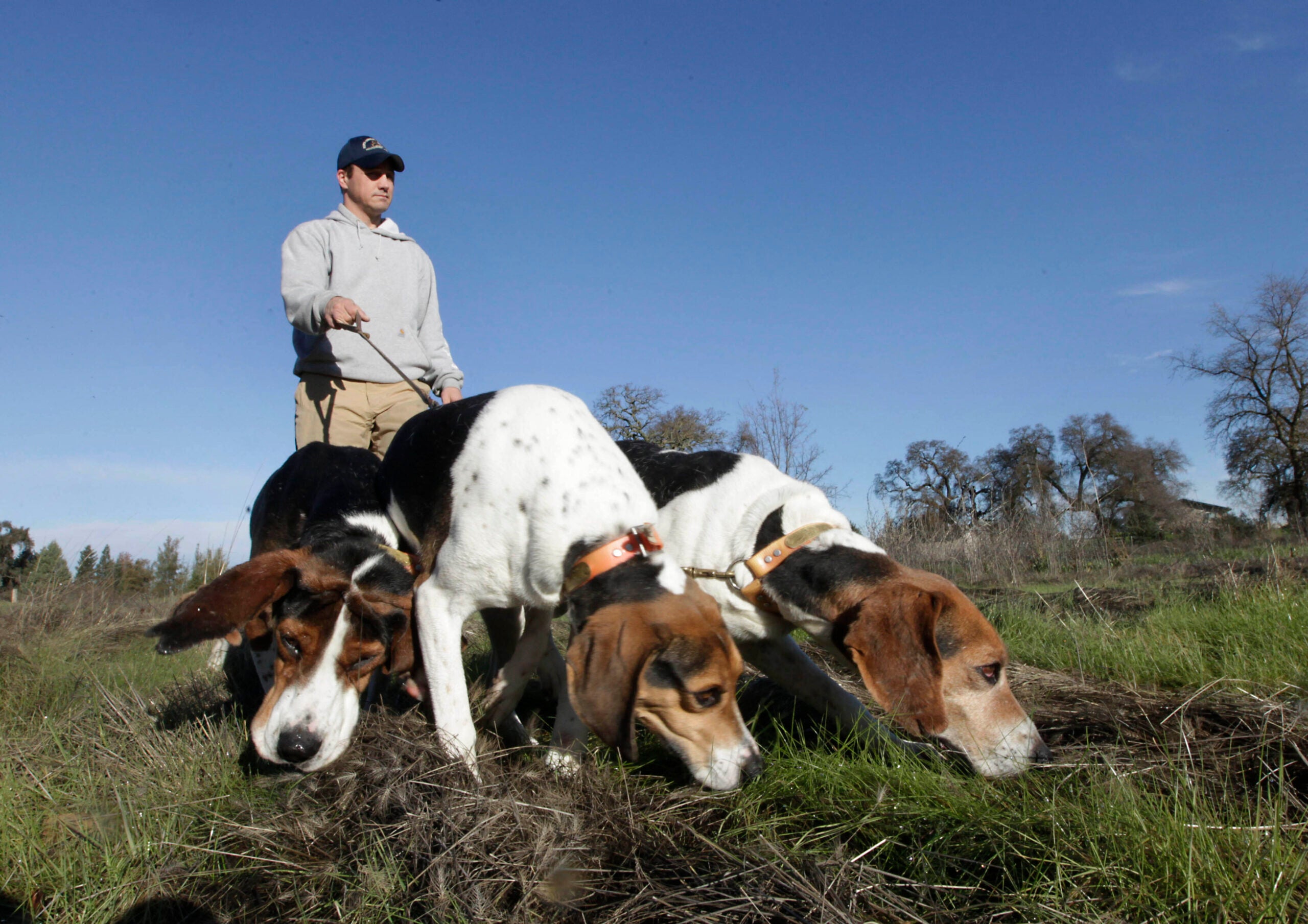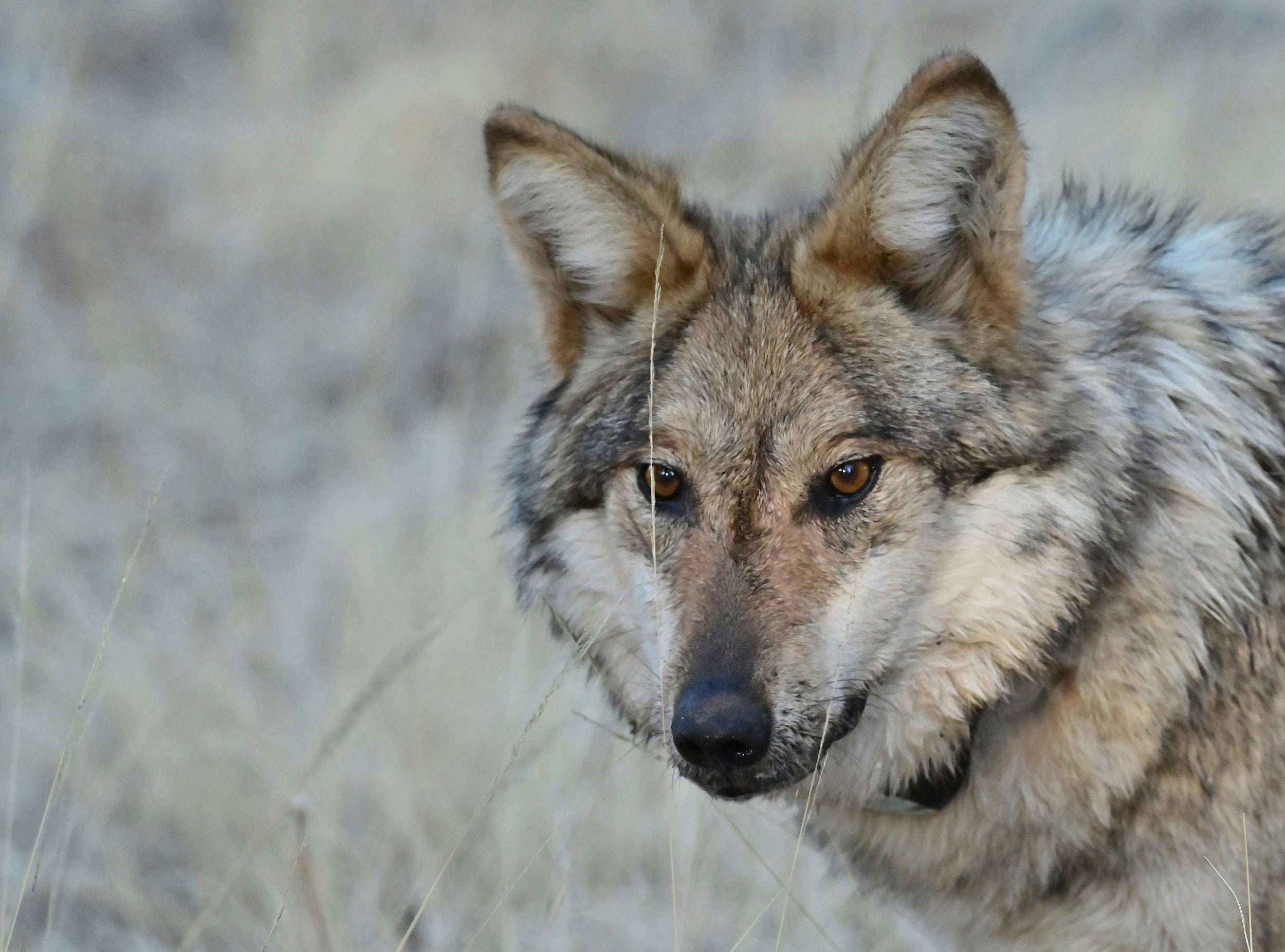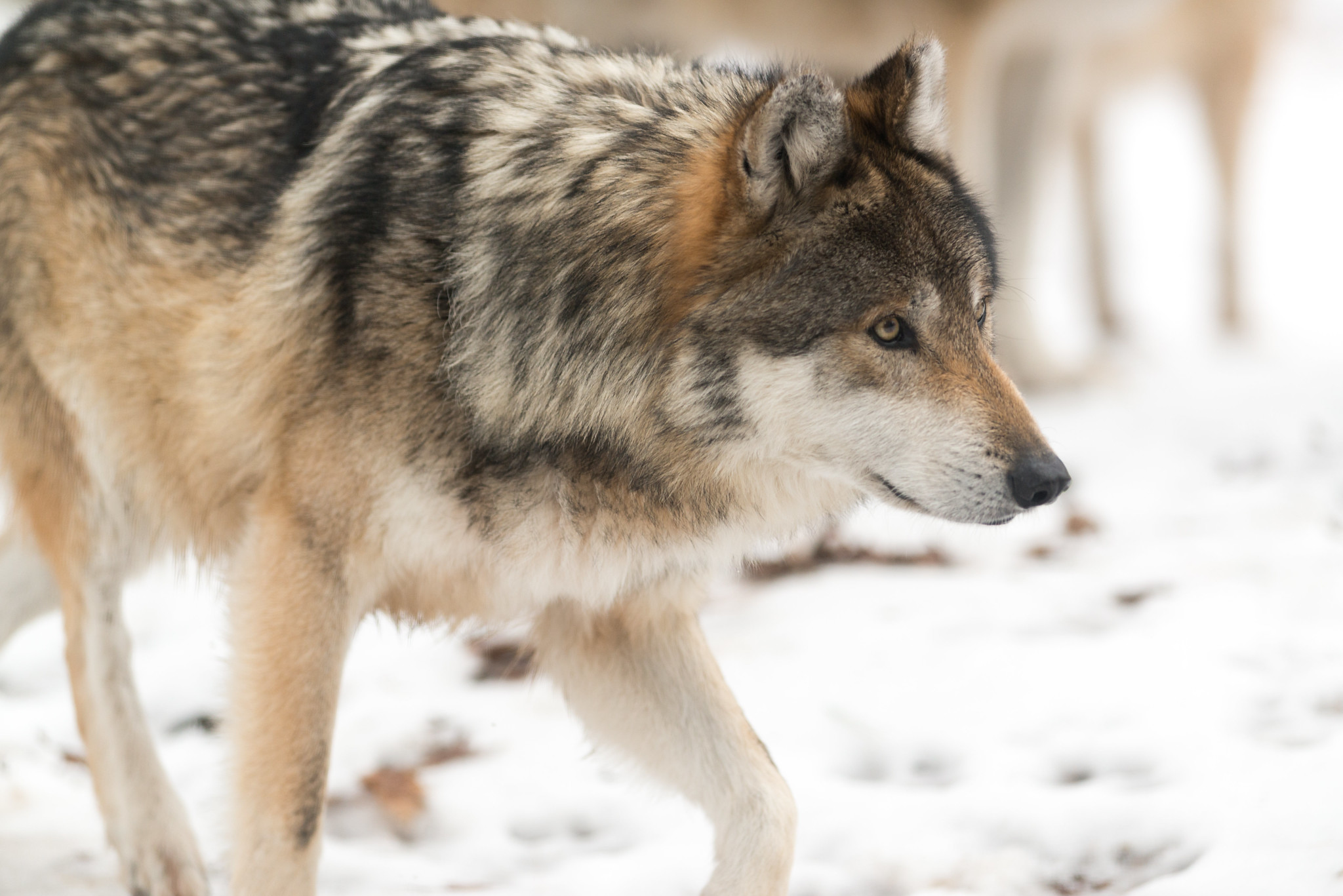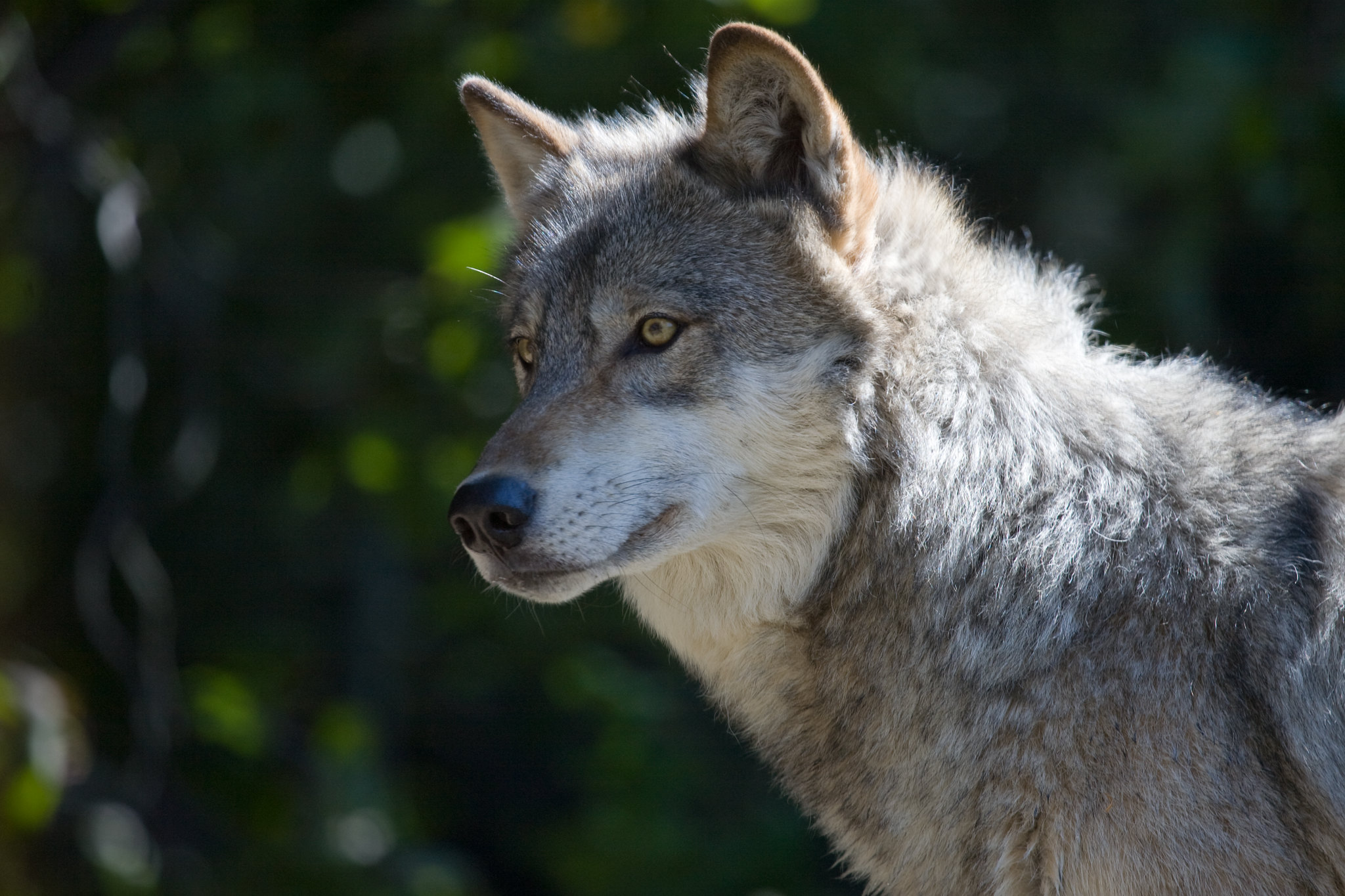A GOP proposal would eliminate restrictions for hound hunting and training on wild animals during the spring in northern Wisconsin, drawing support from hound hunters and opposition from animal protection groups.
Sen. Romaine Quinn, R-Cameron, and Rep. Chanz Green, R-Grand View, are lead authors of the legislation.
The Wisconsin Department of Natural Resources currently bars people from hunting or training with dogs on free-roaming wild animals from May 1 to June 30 on any public or private lands in northern Wisconsin. The restricted area extends along a line north of U.S. Highway 8 in northwestern Wisconsin to State Highway 22 in northeastern Wisconsin.
News with a little more humanity
WPR’s “Wisconsin Today” newsletter keeps you connected to the state you love without feeling overwhelmed. No paywall. No agenda. No corporate filter.
Rep. Green said the law is antiquated.
“It was more to prohibit out-of-season hunting or out-of-season running of dogs,” Green said. “Now that we have well-established seasons on all these things, such as bear hunting, there is no need for this law.”
Green, who is a member of the Wisconsin Bear Hunters Association, said he could face a fine if his dogs took chase on a wild animal while walking them off-leash during the spring. The DNR said no citations have been issued in the last five years for violating the restrictions in northern Wisconsin during that time, indicating hunters are complying.
But Green said the state doesn’t restrict hound hunting or training in the southern two-thirds of Wisconsin during the spring. In a memo for co-sponsorship, Green and Quinn said the current DNR provision “unfairly discriminates against those north of the arbitrary line compared to southern Wisconsin.” The Wisconsin Bear Hunters Association registered in support of the bill, but the group’s representatives didn’t return a request for comment.
Paul Collins, Wisconsin state director with Animal Wellness Action, said the animal protection group opposes the bill.
“All these restrictions do is they give wild animals a chance to raise their young, to have a couple of months where they’re not being harassed by packs of hounds,” Collins said.
Collins said he thinks it’s part of an ongoing effort to eliminate restrictions on hound hunters. The Legislature previously eliminated a requirement for bear hunters to obtain a license to train or pursue bears with dogs under the 2015-17 budget.
But Pat Quaintaince, president of the Wisconsin Association of Sporting Dogs, said his organization supports the bill. He said the current restrictions take away his rights to let his dogs loose on his own property in Bayfield County during May and June. He said that’s the best time to train hounds to hunt raccoons, which he said is only allowed under onerous conditions.
Quaintance argued other predators prey on nesting birds and wildlife during the spring.
“There’s no reason why I couldn’t be able to train my dog up here on raccoons in the month of May and June or rabbits or squirrels or anything else that’s up here besides bear,” Quaintance said.
Scott Karel, the DNR’s regulation policy specialist in the Bureau of Wildlife Management, said bear hunters are only allowed to train with dogs from July 1 to Aug. 31. He said the bill wouldn’t change that. Even so, he said the restrictions aid the agency with enforcement if any hunters are found training with dogs outside the season, particularly on private property.
Groups say the proposal would affect wolves
Adrian Wydeven with Wisconsin’s Green Fire added the spring is also a time when wolves are at their den sites. Wydeven, a former DNR wolf biologist, said removing the restrictions would likely increase wolf attacks on hunting dogs.
“The packs are going to be aggressively protecting their pups in their den site areas, so it probably would lead to additional dogs being killed and injured by wolves each year during that springtime,” said Wydeven, Green Fire’s co-chair of the wildlife working group.
Data shows there have been 28 conflicts this year where wolves killed or injured 34 dogs through Nov. 1, according to the DNR. The agency said wolf conflicts with dogs are up from 17 last year and 15 in 2021. The DNR said it’s unclear what may be driving the increase.
Green said conflicts will occur for those living among wolves in northern Wisconsin.
“We have a dense wolf population, and that is something that the southern half of the state doesn’t have to quite deal with. I know they have wolves down there, but not in the numbers we do,” Green said. “I would say that’s the responsibility of the owner to take care of their pet, keep a watchful eye on them and hopefully to impede anything like that from happening.”
But Collins questioned how hound hunters will control their dogs when they’re outfitted with GPS collars and sometimes running out of owners’ sight. He said it’s convenient that hound hunters want to extend the time they’re running with dogs in wolf habitat, noting the state pays up to $2,500 for each dog killed by wolves.
Quaintance countered his dogs are worth far more than what the state offers in depredation payments, adding a wolf attack on his dogs is the last thing he wants.
The state has paid out almost $1 million for more than 400 hunting dogs killed by wolves since 1987.
Wisconsin Public Radio, © Copyright 2025, Board of Regents of the University of Wisconsin System and Wisconsin Educational Communications Board.






